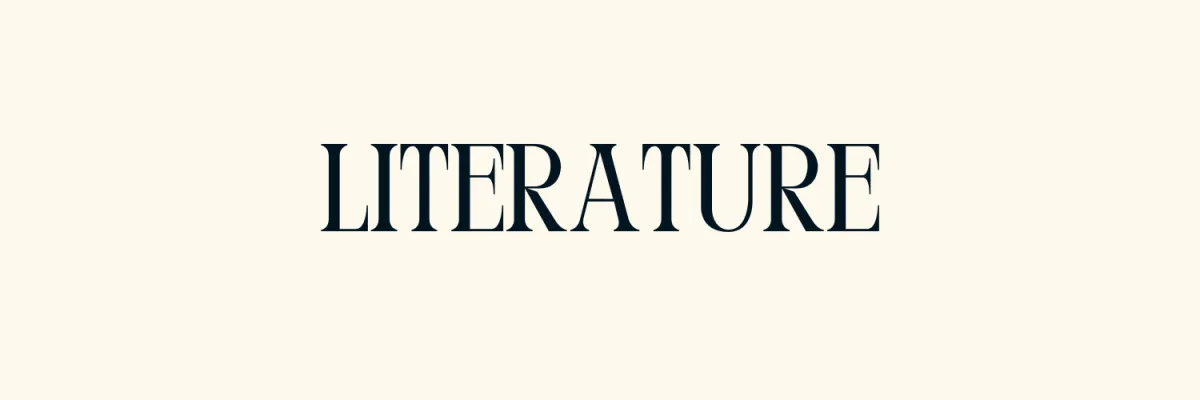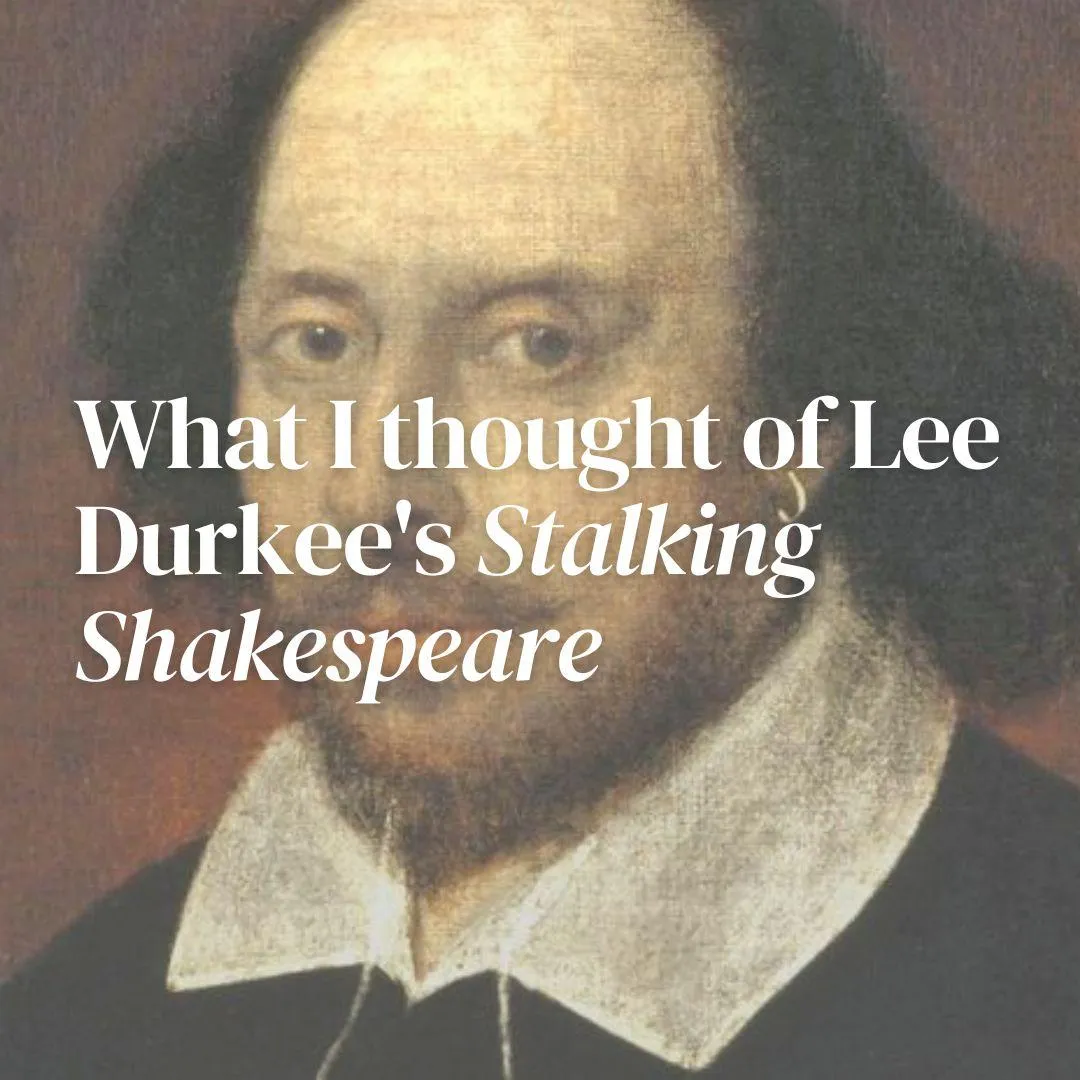


When I received Lee Durkee’s Stalking Shakespeare as a birthday present, I could not have been more excited. Firstly, it’s unlike anything I have ever read before. Typically, I read fiction and (mostly) classics. Durkee’s memoir is truly unique because he both captures his “search for the poet beneath the paint” as well as his own personal journey. I thought that balance was perfect. Stalking Shakespeare was the perfect summer read, turning me into an informed and entertained reader. As I study English Literature in college, I am often given dense works to read in a scarily short time period. Although I’ve enjoyed almost everything I’ve read so far in school, I can admit that there’s a level of stress which comes with deadlines which can take the joy out of reading. Lee Durkee’s Stalking Shakespeare instilled that joy again for me. I honestly haven’t felt compelled to pick up a book of my own and really read it for years, and I’m ecstatic to say that I feel the same excitement to dive into the pages of a book as I used to. Lee Durkee’s Stalking Shakespeare is a fantastic work and I’m thrilled to be writing about it!
Firstly, I have to admit that I didn’t even know that there was a portrait debate until opening up Durkee’s memoir. However, I was intrigued to discover this debate and to learn more about the evidence which supported each portrait’s claim to be the Bard ad vivum. If you’re wondering what ad vivum means as I did, it means “from life.” Essentially, there are tons of portraits and the owners all claim that they were painted during Shakespeare’s life, hence giving us a true depiction of what he really looked like. Lee Durkee’s original theory is that the ugliest portrait must be the winner, and that the portraits in which he appears to be attractive are romanticized reproductions of his true face. I thought this was such an interesting argument and, to be completely honest, I still do not have a theory of my own. I won’t take you through the many portraits and theories which Durkee explores, but I will tell you that with each one I gained more insight into Elizabethan history and life. I also liked how Durkee discussed the authorship debate and its connection to the portrait debate. Essentially, the portrait debate could possibly debunk “The Will” and reveal another writer or writers who are truly responsible for some of the World’s most renowned works of literature. The memoir did not cover just these two unanswered questions though. Durkee guides readers through his life experiences and weaves in interesting anecdotes, both modern and historic.
Durkee’s writing style was exciting and easy to read. I felt as if he was sharing his information and studies with me in a conversation. Essentially, I wasn’t reading a textbook. I was reading a story. Durkee guided me through his life and included where he found what information and what thought processes led him to pursue it. He wrote about the people he met, the discoveries he made, and the challenges he faced. He was the protagonist of his own story, and, although some of his decisions seemed a little questionable at times, he proved himself to be a real person. He wasn’t on some highfalutin quest to discover the truth, but rather a down-to-earth individual who was pursuing a passion in a realistic way. I was also impressed by the years that Durkee put into this endeavor and how he kept searching for more information despite often being turned down or disregarded by officials.
What struck me most (spoilers ahead!) was that Durkee didn’t find an answer to his question. To be honest, I kind of knew all along that he wouldn’t because I hadn’t seen it in the news or read about it somewhere online. However, I did hold out a futile hope that Durkee would discover the true portrait of a living Shakespeare, confirm my belief that “Shakespeare wrote Shakespeare!,” and discover what really happened to him. I wanted Durkee to supersede all the experts who claim authority over Shakespeare. In reality, how much does anybody really know about a man who died over 400 years ago and left very little behind aside from his writings? Was he killed at the word of King James for a play that commented on his ownership of the throne or regime in some other way? I am left with so many unanswered questions, but I don’t blame Durkee. In reality, he has given me something to think about. The sad part is that I don’t think I’ll ever know the answers to those questions. That is the mystery of it all though, which somehow makes reading Shakespeare’s plays all the more exciting.
The part of the memoir that stuck with me the most was this: Durkee imagines being forced to answer the authorship question while standing over a tank of sharks (the wrong answer sends him plunging down). Durkee finally says that “You can’t write a bestselling biography called I Don’t Know Who the Hell Wrote Shakespeare and Neither Do You nor can you print up a sellable T-shirt or coffee mug on that theme. But it’s the truth, you don’t know, and neither do you, or you, or you, but as a culture we won’t admit we don’t know who wrote Shakespeare. We desperately want to know. But we don’t. And likely never will” (Durkee 245). To be honest, I’ve gotten so invested in Shakespeare and his writings that I’m scared I’d be devastated if I discovered that someone else wrote them. I can’t say exactly why, but I think I as an individual and we as a culture have our hearts so set on uncertain matters that we feel confused and helpless when considering that we might have it wrong. Now that I think about it, what’s the big deal if Shakespeare didn’t actually write Shakespeare? The plays and sonnets were still written and their cultural impact still happened. I still find the writing to be inspiring and beautiful and I don’t think it would have impacted me any less had it not been written by William Shakespeare. I still believe that Shakespeare wrote Shakespere, but do I believe so because it’s what I’ve been taught all my life? And do I feel strongly enough about the authorship debate to be seriously upset if I discover that I’ve been wrong? Once again, Durkee provides me with more questions than answers, but none that I am upset with.
All in all, Lee Durkee entertained, excited, and educated me with Stalking Shakespeare. What I believed to be most impressive about his writing is that he doesn’t force his personal opinions onto readers and that he considers the positives and negatives to all theories. On a personal level, I once again have been reeled back into reading, which I could not be happier about. If you’re interested in Shakespeare or learning in general, I could not recommend Lee Durkee’s Stalking Shakespeare more. It made me laugh and it made me think!
Email: christina@christinalschwab.com
Site: www.christinalschwab.com
